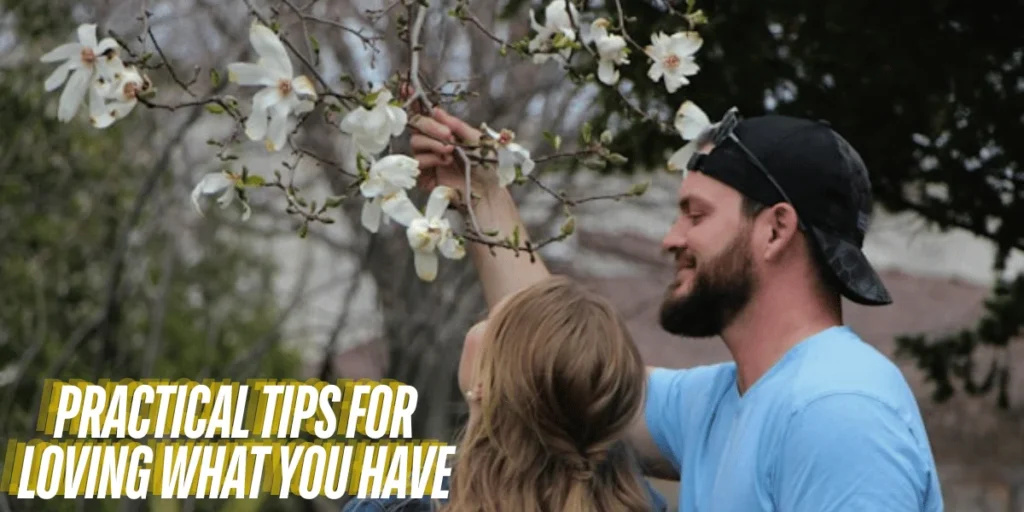In today’s fast-paced world, people often find themselves chasing after new experiences, material possessions, and personal achievements. While there’s nothing wrong with ambition, there’s a profound wisdom in the phrase “Love what you have, before life teaches you to love”—a phrase often echoed by the popular platform Tymoff. This saying holds great meaning, urging individuals to appreciate what they already possess before circumstances force them to recognize their value. In this comprehensive article, we will explore the deeper implications of this thought, breaking it down in terms of relationships, materialism, personal growth, and mental well-being.
Understanding the Concept: Love What You Have, Before Life Teaches You to Love” – Tymoff
At its core, this saying encourages mindfulness and gratitude in life. It reminds people to cherish what they have—whether it’s relationships, possessions, health, or opportunities—before losing them or facing hardships that compel them to reassess their priorities. Tymoff, a platform that often shares motivational content, uses this phrase to inspire its users to adopt a mindset that prioritizes appreciation over dissatisfaction. When you love what you have, you foster inner peace, contentment, and deeper connections with those around you.
Why is This Message Important?
The reason this message resonates with so many people is because it taps into a universal human experience. In a world that constantly pushes for more—more success, more wealth, more recognition—people often forget to pause and appreciate what they already have. This can lead to feelings of inadequacy and perpetual dissatisfaction. By adopting the perspective of “love what you have,” individuals can combat this endless cycle of wanting and learn to find joy in the present.
Also read: GeorgeNotFound Age | Earn Tuffer | Your Organization’s Data Cannot Be Pasted Here.
Tymoff: A Platform for Personal Growth and Reflection
Tymoff has become a popular hub for self-improvement and personal reflection. It features quotes, stories, and advice that resonate with those looking to better themselves and their lives. The platform often highlights powerful statements like “Love what you have, before life teaches you to love,” encouraging users to shift their focus from what they lack to what they already possess. By using this approach, Tymoff has fostered a community that emphasizes mindfulness, gratitude, and personal growth.
The Role of Gratitude in Love What You Have, Before Life Teaches You to Love
Gratitude is at the heart of this message. Learning to love what you have requires a conscious effort to appreciate the present and the people, experiences, and possessions that are part of it. Gratitude shifts focus from a mindset of scarcity—thinking about what you don’t have—to one of abundance, recognizing all that is good in your life.
How to Cultivate Gratitude
- Daily Journaling: Start your day by writing down three things you’re grateful for. This simple practice can significantly improve your mood and outlook.
- Mindful Reflection: Set aside time each day to reflect on what you have, be it relationships, health, or opportunities, and mentally note their importance in your life.
- Expressing Thanks: Don’t hesitate to express gratitude to those around you. Whether it’s through words or actions, letting others know they’re appreciated strengthens bonds and reinforces the habit of thankfulness.
The Trap of Materialism: Wanting More Versus Appreciating What You Have
In today’s consumer-driven society, the pressure to acquire more is constant. Advertisements, social media, and societal standards push people to believe that happiness lies in owning the latest gadgets, cars, or fashionable clothes. However, “Love what you have, before life teaches you to love” offers a sharp contrast to this mindset. Material possessions are temporary and can’t bring long-lasting satisfaction.
The Dangers of Constantly Wanting More
- Endless Pursuit: Chasing after material wealth or possessions leads to a never-ending cycle. Once you achieve one goal, the next one appears, leaving little time to enjoy what’s already been gained.
- Emotional Disconnection: When material things become a priority, personal relationships and self-care often take a back seat, leading to loneliness and emotional disconnection.
- Stress and Anxiety: Constantly striving for more can lead to increased stress and anxiety, especially when goals are unattainable or take longer to achieve than anticipated.
Tymoff’s Take on Mindfulness and Contentment
Tymoff frequently promotes mindfulness and contentment as essential components of a fulfilling life. According to the platform, mindfulness means being present in the moment and appreciating what you have, rather than constantly seeking what you don’t. This mindset leads to deeper satisfaction and happiness in life, a recurring theme in Tymoff’s content.
Life Lessons: How Hardships Teach Us to Love What We Have
Unfortunately, many people only learn to love what they have after they’ve lost it. Whether it’s the loss of a loved one, a health scare, or a financial downturn, life has a way of forcing individuals to recognize what’s truly valuable. This is why the phrase “Love what you have, before life teaches you to love” is so poignant—it encourages people to skip the heartache and appreciate the present before life’s challenges teach them painful lessons.
Examples of Life Teaching Hard Lessons
- Relationships: Often, people only realize the value of a relationship once it’s strained or lost. Taking time to nurture and appreciate loved ones prevents regret in the future.
- Health: Many don’t fully appreciate their health until they experience illness. By adopting healthy habits now and appreciating physical well-being, one can avoid the harsh lesson of neglecting self-care.
- Opportunities: Career or personal opportunities might seem abundant in the moment, but hindsight often reveals missed chances. Recognizing and valuing them as they arise helps prevent missed growth opportunities.
Also read: Naz Tricks You Need to Know | EzClasswork | Shared Joy Is A Double Joy; Shared Sorrow Is Tymoff
Practical Tips for Loving What You Have

To truly live by the mantra “Love what you have, before life teaches you to love”, practical steps are needed. Below are some ways to implement this philosophy in everyday life:
- Limit Comparisons: Social media often promotes unrealistic portrayals of other people’s lives. Avoid comparing your journey to others and focus on your personal achievements and blessings.
- Set Boundaries with Materialism: While there’s nothing wrong with wanting nice things, set boundaries on how much value you place on material possessions. Prioritize experiences and relationships over objects.
- Focus on the Present: Rather than waiting for “better days” in the future, focus on the joys and opportunities present today. Appreciate what you have now, without postponing happiness.
- Develop Emotional Connections: Strengthen relationships by showing love, empathy, and gratitude. Make time for family and friends, and value the emotional richness they bring to your life.
Tymoff’s Vision: Creating a World of Gratitude
The underlying vision of Tymoff is to create a community where people value themselves and what they have over external validation or material gains. The platform fosters a space for self-reflection and growth, and the phrase “Love what you have, before life teaches you to love” is at the heart of this message. Tymoff encourages users to embrace gratitude, mindfulness, and emotional connection as the keys to a fulfilling life.
Also read: Convatec From: 416400 to: 416419 – Natura Closed End Pouch With Filter | EzClasswork: A Complete Guide Mini Games
Conclusion: Embracing Love What You Have, Before Life Teaches You to Love – Tymoff’s Enduring Wisdom
The phrase “Love what you have, before life teaches you to love” carries a powerful and timeless message. It reminds us that life is fleeting, and our relationships, health, and experiences are fragile and should not be taken for granted. By practicing gratitude and mindfulness, individuals can cultivate a deeper sense of contentment and avoid the pitfalls of materialism and dissatisfaction. Tymoff’s promotion of this mindset serves as a guide for anyone looking to live a more fulfilled and present life.
Adopting this philosophy can lead to a more peaceful, happier life where the focus is on appreciating what is rather than lamenting what isn’t. So, love what you have today, because life may not give you the chance to fully realize its value until it’s too late.
Frequently Asked Questions: Love What You Have, Before Life Teaches You to Love – Tymoff
1. How is this concept related to Tymoff?
Tymoff, a platform known for sharing motivational quotes and personal growth content, promotes the message of loving and appreciating what you have. The platform emphasizes mindfulness and gratitude, encouraging its community to value the present.
2. Why do people only realize the value of something after losing it?
People often take what they have for granted until they no longer have it. Life’s hardships—such as loss, illness, or missed opportunities—force individuals to reflect on what they had, making them realize its true worth.
3. Can materialism affect my ability to appreciate what I have?
Yes, materialism can create a constant need for more, making it difficult to be satisfied with what you already own. This endless pursuit often distracts from appreciating relationships, experiences, and other non-material aspects of life.
4. How can I cultivate a mindset of loving what I have?
You can cultivate this mindset by practicing gratitude daily, setting limits on material desires, and focusing on nurturing relationships. Additionally, avoid comparing yourself to others and appreciate the unique aspects of your own life.






